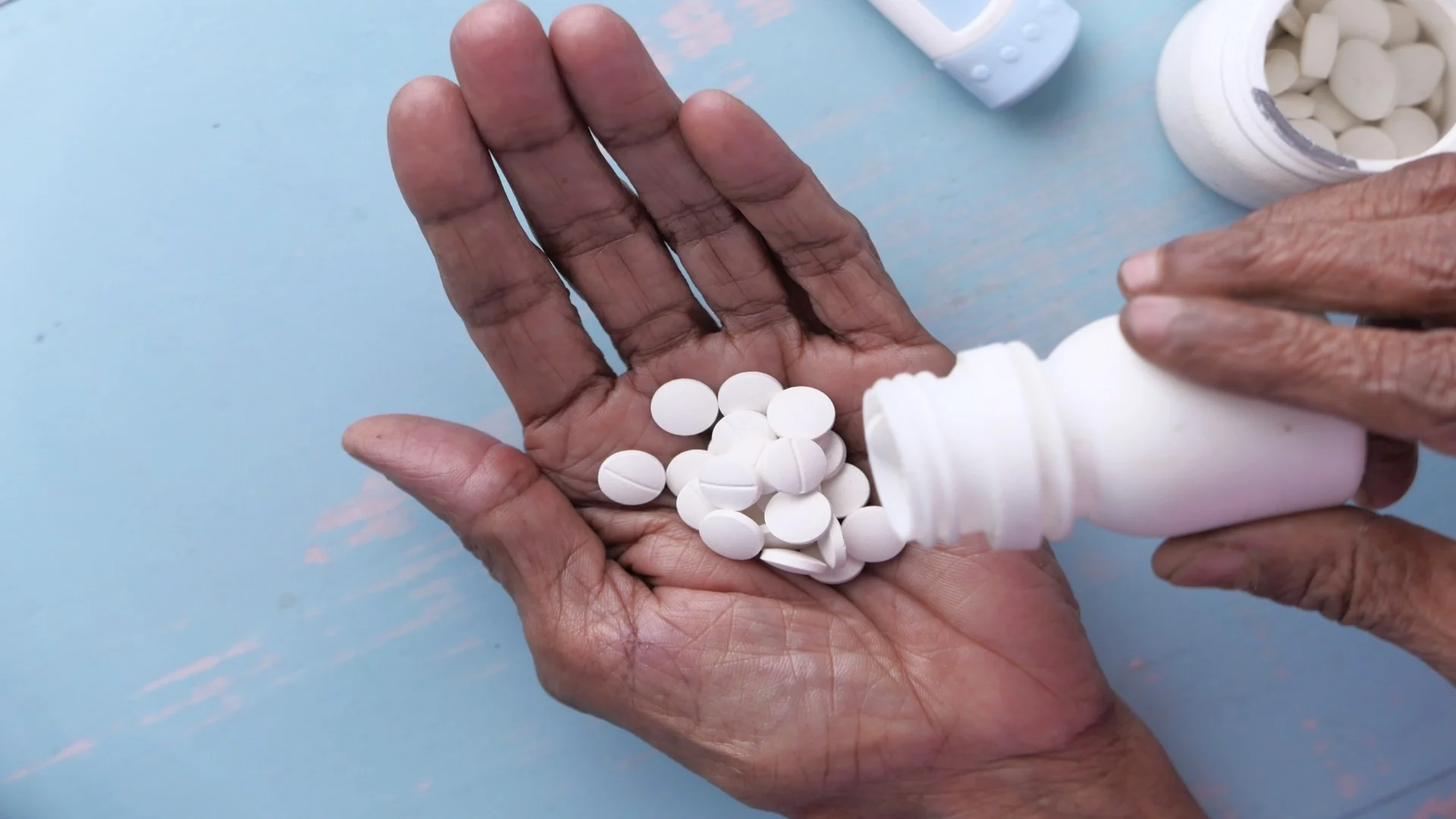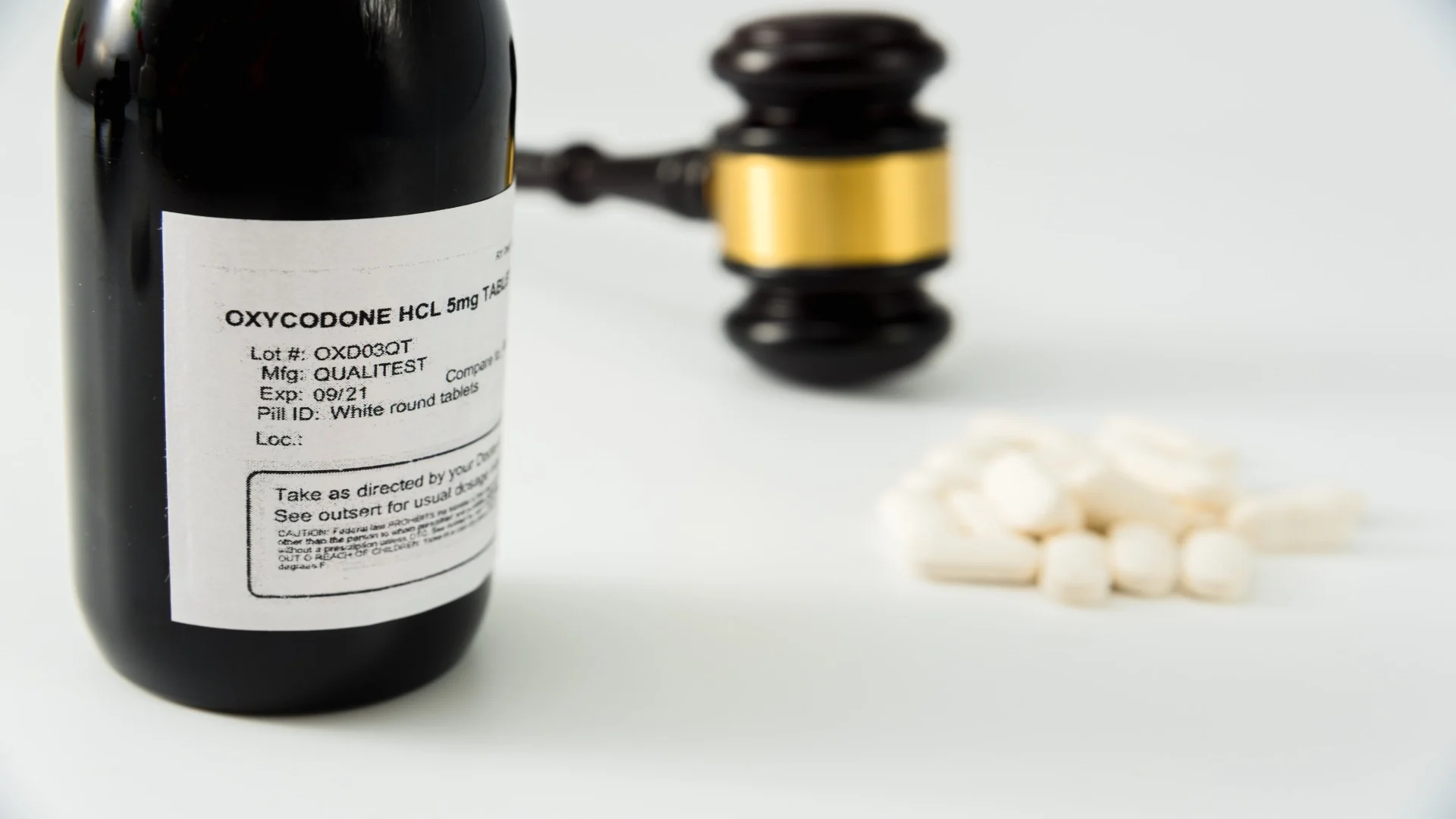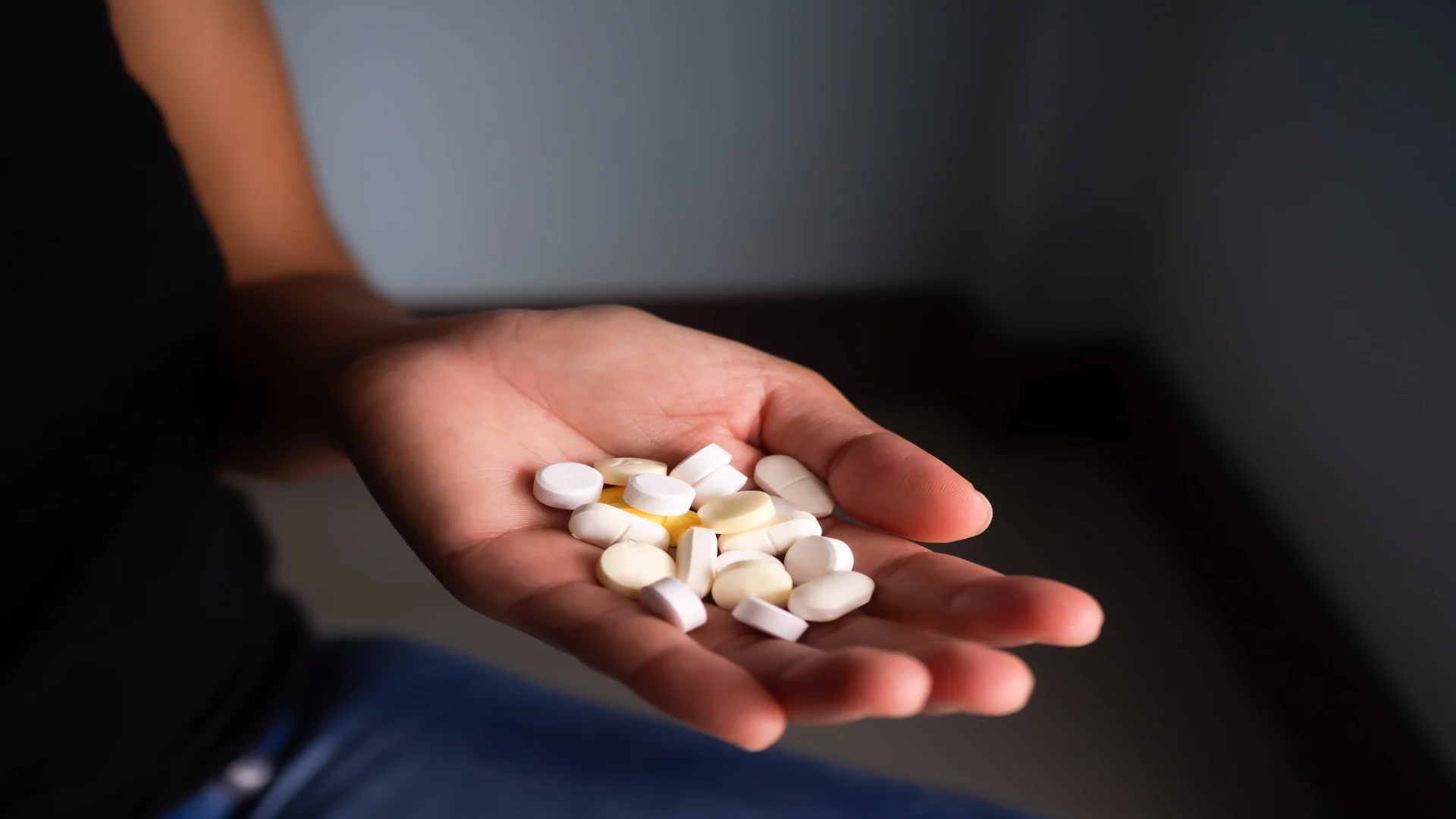Drug and Alcohol
Is Oxycodone an Opioid? Understanding the Drug, Its Risks, and How to Get Help

Learn if oxycodone is an opioid, its risks, effects, and how to seek help for addiction. Explore safe and effective treatment options for long-term recovery.
How can family members support someone with oxycodone addiction?
Family members can help by encouraging treatment, offering emotional support, and educating themselves about addiction. Patience, open communication, and involvement in recovery planning, such as attending family therapy, can strengthen trust and create a supportive environment essential for long-term recovery.
Can mixing oxycodone with alcohol be dangerous?
Yes, it’s hazardous. Both substances depress the central nervous system, significantly increasing the risk of respiratory failure, overdose, or death. Combining them can be fatal. Anyone prescribed oxycodone should avoid alcohol altogether to stay safe and prevent life-threatening complications.
What should I do if I suspect an oxycodone overdose?
Call 911 immediately. Common signs include slowed or stopped breathing, unconsciousness, and pinpoint pupils. If you have naloxone (Narcan), administer it right away. Stay with the person and provide reassurance until emergency responders arrive. Acting quickly can save a life.
Is a prescription required for oxycodone?
Yes, a prescription is required. Oxycodone is a controlled substance due to its high potential for misuse and addiction. Only licensed healthcare providers can prescribe it, which should always be used exactly as directed to reduce the risk of dependence.
What role does counseling play in treating oxycodone addiction?
Counseling helps individuals understand and address the psychological roots of addiction. It teaches coping strategies, identifies triggers, and supports emotional healing. Whether individual or group-based, counseling plays a vital role in promoting long-term recovery and preventing relapse.
Is oxycodone an opioid? Oxycodone is a prescription opioid commonly used to manage moderate to severe pain. But while effective for pain relief, it carries a significant risk: addiction. For individuals and families navigating this struggle, the journey can be overwhelming.
At The Edge Treatment Center, we know that addiction isn’t just a medical condition—it’s an emotional and psychological burden. That’s why we provide individualized, compassionate treatment tailored to your circumstances. Whether you're personally affected or supporting a loved one, help is possible. With the proper care, recovery isn't just a hope—it's a plan.
What Is Oxycodone?

Oxycodone is a semi-synthetic opioid derived from thebaine, a substance found in the opium poppy. It’s prescribed for managing pain after surgeries, injuries, or in cases of chronic conditions like cancer or arthritis.
By interacting with opioid receptors in the brain and central nervous system, oxycodone alters pain perception and induces a sense of relief or calm. However, it doesn’t just mute pain—it can also trigger a euphoric high, making it susceptible to misuse.
Medical Use and Classification
Classified under Schedule II controlled substances in the United States, oxycodone has legitimate medical uses but a high potential for abuse. Its action is similar to drugs like morphine, hydrocodone, and fentanyl.
In medical settings, it's available in formulations like OxyContin (extended-release) or Percocet (combined with acetaminophen). Doctors prescribe it when other pain medications fail, but they also warn about its addictive potential, particularly when taken over a long period or in higher doses than recommended.
Common Uses
Beyond post-surgical care, oxycodone is used for:
Cancer-related pain: Especially in advanced stages.
Traumatic injuries, Such as fractures or burns.
Palliative care: To improve comfort in terminal conditions.
Chronic non-cancer pain: Like back pain, though long-term use is controversial due to the risks.
While these applications provide relief, striking a balance between benefits and the risk of dependence is crucial.
How Addiction Develops
Addiction doesn’t happen overnight. It often starts with a legitimate prescription. Over time, the body develops tolerance, requiring higher doses for the same level of pain relief.
The brain also adapts, decreasing its dopamine production, the chemical responsible for feelings of pleasure. Eventually, the person may feel normal only when using oxycodone, and awful without it.
Warning signs of developing addiction include:
Taking more pills than prescribed
“Doctor shopping” to get additional prescriptions
Using the drug to feel high, not just pain-free
Withdrawal symptoms when trying to stop
Short-Term Side Effects

In the short term, oxycodone use comes with side effects, including:
Drowsiness or sedation
Dry mouth
Nausea and vomiting
Constipation
Slowed breathing
Respiratory depression is hazardous and can lead to death, especially if oxycodone is mixed with alcohol or other depressants.

We’re Here To Help You Find Your Way
Would you like more information about mental health or drug addiction? Reach out today.
Long-Term Health Risks
Chronic use brings more profound consequences. These include:
Cognitive decline: Memory problems and slower thinking.
Hormonal changes, Such as reduced testosterone or fertility issues.
Immune suppression Can Lead to frequent infections.
Liver toxicity: Especially when combined with acetaminophen-based drugs like Percocet.
Cardiovascular stress includes irregular heartbeat and increased blood pressure.
These effects often go unnoticed until they become severe. Long-term users may not even realize their baseline health has deteriorated.
Emotional and Social Consequences
Oxycodone addiction doesn't just affect the body—it disrupts every part of life. Users may lose interest in relationships, hobbies, or work. Common emotional impacts include:
Anxiety and panic attacks
Depression and hopelessness
Irritability or aggression
Guilt and shame over dependence
Socially, individuals may begin to lie, steal, or isolate themselves, creating distance from family and friends. Financial strain also builds from spending money to maintain the habit, sometimes leading to theft or legal issues.
Recognizing the Signs in Others
If you suspect someone you love is struggling with oxycodone use, look for:
Secretive behavior or sudden changes in routine
Decline in grooming or hygiene
Deteriorating work or school performance
Missing pills or prescriptions being refilled too soon
Disinterest in previous passions or commitments
The earlier these signs are noticed, the more successful the intervention will likely be.

We’ll Lead You to New Heights
Do you have more questions about mental health or drug addiction? Reach out.
Withdrawal Symptoms: What to Expect
Withdrawal from oxycodone is often described as feeling like a severe flu combined with intense anxiety. Symptoms include:
Sweating and chills
Restlessness
Abdominal cramps and diarrhea
Muscle aches
Insomnia and fatigue
Intense cravings
The process starts within 6–12 hours of the last dose, peaks around 72 hours, and may continue in milder form for weeks. Some experience "post-acute withdrawal syndrome" (PAWS), marked by lingering mood disturbances and sleep issues. Medical supervision can ease these symptoms and reduce the risk of relapse.
Treatment Options: What Works for Oxycodone Addiction
There’s no one-size-fits-all solution when it comes to overcoming oxycodone addiction. Recovery looks different for everyone, so effective treatment plans often combine various approaches tailored to the individual’s needs.
Inpatient rehabilitation provides a highly structured environment with 24/7 care—ideal for people facing severe addiction or those who don’t have a stable or supportive home life. These programs eliminate external triggers, allowing individuals to focus entirely on their recovery.
Outpatient programs offer flexibility without compromising support for those with work, school, or family commitments. Clients attend regular therapy sessions, receive medical evaluations, and follow a structured treatment plan while continuing to live at home.
Medication-assisted treatment (MAT) is a cornerstone for many people recovering from opioid addiction. FDA-approved medications like Suboxone (a combination of buprenorphine and naloxone) and methadone help manage cravings and minimize withdrawal symptoms, making it easier to stay committed to sobriety.

Cognitive-behavioral therapy (CBT) helps individuals understand the patterns and triggers behind their substance use. By challenging negative thoughts and developing healthier coping mechanisms, CBT plays a vital role in preventing relapse.
Group support programs such as Narcotics Anonymous or SMART Recovery provide a sense of community. Sharing experiences with others on the same journey builds accountability and reminds individuals that they’re not alone.
The most successful treatment plans often combine these options, addressing both the physical and psychological aspects of addiction. With the right mix of medical, therapeutic, and peer support, long-term recovery from oxycodone addiction is entirely possible.

We’re Here To Help You Find Your Way
Do you need advice about mental health or drug addiction? Reach out today.
Why Professional Help Is Critical
Trying to quit cold turkey without support rarely works. Detoxing alone is not only physically painful—it’s emotionally taxing and increases the risk of overdose if relapse occurs. Professional treatment offers:
Supervised withdrawal
Emotional support and relapse prevention training
Access to counselors and addiction specialists
Structured recovery milestones
Recovery isn't just about removing the drug—it’s about building a new way of living. That requires support, strategy, and follow-through.
How The Edge Treatment Center Supports You
At The Edge Treatment Center, we offer a deeply personalized recovery path. Our treatment philosophy combines:
Clinical expertise: Medical detox and psychiatric evaluations
Therapy sessions: Individual, group, and family-based counseling
Holistic options: Yoga, nutrition plans, and mindfulness training
Aftercare planning: To maintain sobriety after rehab ends
We don’t just treat symptoms—we address root causes. Whether it's trauma, anxiety, or chronic stress fueling the addiction, we help clients understand themselves better and reclaim control.
Our Environment Matters
Healing begins in a safe, encouraging environment. That’s why our facility is designed to feel welcoming, not clinical. Clients are treated with dignity and respect and surrounded by professionals who care, not judge. Our team walks with you every step of the way, celebrating progress and helping you navigate setbacks.
Take the First Step
If oxycodone addiction is taking over your life, you don’t have to wait for things to get worse. Recovery starts with a single, brave step: reaching out. At The Edge Treatment Center, we’re ready to meet you where you're—with empathy, knowledge, and a clear roadmap forward.

We’ll Lead You to New Heights
Would you like more information about mental health or drug addiction? Reach out today.
Is Oxycodone Addiction Taking Over Your Life? We’ll Help You Take It Back.
Reclaiming your life from oxycodone addiction is not only possible—it begins with taking the first courageous step toward seeking help. At The Edge Treatment Center, we’re here to walk beside you on every part of your recovery journey.
Our expert team understands the challenges of addiction and provides personalized care plans that reflect your unique needs. From evidence-based therapies, medication-assisted treatment, and holistic support, we offer a comprehensive approach that promotes long-term recovery.
Don’t let addiction dictate your future. Reach out today, and take back control of your life. With the proper support, a healthier, addiction-free future is within reach.

We’re Here To Help You Find Your Way
If you or a loved one is struggling with addiction, there is hope. Our team can guide you on your journey to recovery. Call us today.
Written by
The Edge Treatment Center
Reviewed by
 Jeremy Arzt
Jeremy ArztChief Clinical Officer
Drug and Alcohol
July 13, 2025
